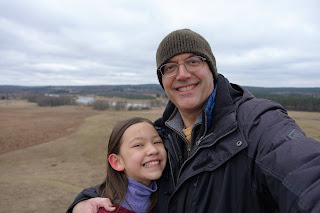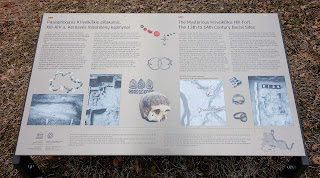I consider myself very fortunate to have lived in Tōkyō 東京 in my late twenties and into my thirties. Not only is it the capital of a country with a fascinating culture and history, but it's also one of the most dynamic cities in the world. I spent many a weekend night enjoying the city's nightlife, often missing the last train of the day (sometimes by accident, sometimes deliberately) and thereby having to stay out until the first train the next morning, usually at around five or six o'clock. My first year in Tokyo I would often hang out in the gaijin 外人 cesspool that was (and for all I know still is) Roppongi 六本木, but I soon moved on and expanded my horizons to take in areas such as Shinjuku 新宿 (my favorite), Shibuya 渋谷, Shimokitazawa 下北沢, Kōenji 高円寺, Kichijōji 吉祥寺 and even on occasion Yokohama 横浜. But that was long ago, and age, family and geography have considerably changed how I spend my weekend evenings.
This past Saturday was a rare excursion out for just my wife and me as we joined some colleagues from work for a late afternoon/early evening of Lithuanian beer tasting at Alaus Biblioteka (Beer Library). My wife poses in front of the building before going inside:
Over a 2½-hour period we sampled seven different beers while one of the bartenders explained aspects of each brew as well as providing an overview of the history of beer-making in Lithuania. First up was a Märzen amber lager. The card in front of the bottle organizes the different types of beer along the lines of the periodic table:
Your humble scribe tries beer #2, a witbier wheat ale:
Next up was a traditional homemade Lithuanian brew, with a strong (and acquired) taste of honey:
Number four was an original creation by Alaus Biblioteka, an altbier German ale that was awarded a prize in 2013:
Now I'm trying a Belgian dark ale:
The sixth beer in the line-up was a rauchbier European lager that had an aroma akin to grilled sausage. It was surprisingly good despite that description:
Shu-E samples a doppelbock, the final beer of the evening:
My constitution isn't what it used to be. Here I'm making a brave attempt to remain steady following the beer tasting. I can't wait to do something like this again!:
I awoke feeling tired on Sunday, but not because of the previous day's beer tasting. At 3:00 on Sunday morning Lithuania switched to daylight savings time, meaning I lost an hour's sleep. The day would be overcast and chilly (gloomy, in other words), but at least it didn't rain and/or snow, like it had at times on Saturday. Not having gone on any drives out of Vilnius in quite some time, the three of us got in the car after breakfast and drove 35 kilometers to Kernavė, a sleepy village located in the scenic Neris Valley. According to the Estonia, Latvia & Lithuania Eyewitness Travel guide:
Archaeological finds show that the site was inhabited as far back as 9000 BC. In the 13th century, Kernavė was the first capital of the united Lithuanian tribes and a busy trading center. The Northern Crusaders ransacked the prosperous pagan town in 1365. In 1390, another attack was launched by a mighty army consisting of knights, soldiers and mercenaries from Germany, France, Italy and England. Henry IV (1367-1413), the future king of England, also participated in the assault, from which the town never recovered.
Today, Kernavė is home to a renowned archaeological reserve, having attained UNESCO World Heritage Site status in 2004. Although the Archaeological & Historical Museum was disappointingly and inexplicably closed this Sunday, the Kernavė Cultural Reserve (Kernavės kultūrinio rezervato) was fortunately open for exploration. Visitors like us could wander up and down the five large hill-forts, the summits from which provided beautiful views of the surrounding terrain, even on a day as gray as Sunday:
The dark speck in the distance my daughter is pointing to is her mother, who decided the staircases would be too much of an effort to ascend
"The Oldest Burial Site in Kernavė" (first millennium BCE)
The Neris, the same river that flows through Vilnius
A reconstructed settlement
I'd like to go back when the weather warms up and the museum is more likely to be open.
Dominating the Taiwan blogosphere these past few days has been the reaction among Western expats to the news that the Taiwanese government has relaxed its requirement that non-Taiwanese wishing to receive R.O.C. citizenship relinquish their foreign nationality...sort of. Only "high-level professionals" will be exempt, according to the new regulations being promulgated, as noted in the always-worthwhile View from Taiwan. This means the vast majority of foreigners residing in Taiwan, namely English teachers from Western countries and blue-collar workers from Southeast Asia (the latter mainly working in factories and as caregivers, and whose plight is almost always overlooked by the white guys and gals arguing in Facebook over whose interpretation of Taiwan is the only correct one), still are not allowed to hold dual nationality should they wish to attain citizenship in the erstwhile Republic of China 中華民國. While I can understand and sympathize with the anger and frustration of those who have worked hard to build lives for themselves in a place they've come to call home (like this blogger), it also reveals the self-delusions some have constructed about life on the beautiful isle. The Taiwanese government's policies on citizenship and immigration were not formulated in a vacuum; instead, they've been shaped to reflect the attitudes of Taiwanese society. Yes, people are very friendly toward foreigners (white ones, anyway); but as I've often tried to point out, that friendliness is predicated on the assumption that the 外國人 is a visitor, and is thus treated with the same level of kindness as that extended to a house guest. And, yes, Taiwan (or perhaps more accurately, Taipei 台北) can be a great place to live and work, and, somewhat surprisingly, permanent residency isn't that difficult to obtain. But it's hard to understand the anguished cries of some over discriminatory nationality regulations - why would you want to become a citizen of a country that clearly is uncomfortable with the thought of you somehow becoming one of the "us" instead of remaining as one of the "them"?
Vilnis (both old and new) on a sunny Friday morning as seen from Amber's school

























No comments:
Post a Comment